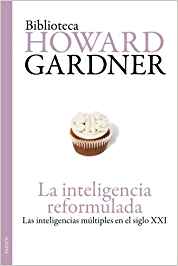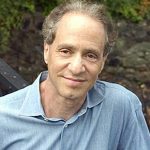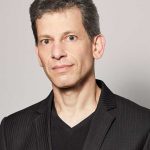

Howard Gardner
American developmental psychologist and the John H. and Elisabeth A. Hobbs Professor of Cognition and Education at the Harvard Graduate School of Education at Harvard University.
El conocimiento en una organización es 'de tareas'. Los veteranos las comprenden y valoran pero son difíciles de explicar, forman la cultura de una organización.
Gardner was the son of Jewish refugees from Nazi Germany. He was a studious child who loved to read, and he developed into a gifted pianist. He retained a lifelong passion for music that contributed to his nonunitary conception of human cognitive capacity.
Howard Gardner undertook most of his formal training and graduate work at Harvard University, where he earned a bachelor’s degree in social relations in 1965 and a doctoral degree in developmental psychology in 1971. His many academic appointments included a professorship of neurology at Boston University School of Medicine (1984–2005) and a professorship of education at the Harvard Graduate School of Education (1986–98), where he was appointed the John H. and Elisabeth A. Hobbs Professor of Cognition and Education in 1998.
In Frames of Mind, Gardner faulted earlier, unitary models of intellectual ability, in which intelligence was typically reported as a single IQ (intelligence quotient) score. Instead, Howard Gardner's multiple intelligences theory detailed a more complex paradigm in which human intelligence comprises eight or more relatively autonomous intellectual capacities: logical-mathematical intelligence, musical intelligence, linguistic intelligence, bodily-kinesthetic intelligence, spatial intelligence, interpersonal intelligence, intrapersonal intelligence (the capacity to understand oneself), and naturalist intelligence (the ability to recognize and make use of certain aspects of the environment).
The theory of multiple intelligences affected many school-improvement efforts in the United States. Gardner and others promoted efforts to understand diverse student capacities and emphasized the need for personalized educational environments, improved interdisciplinary curricular programs, and the use of performance-based assessments.
Gardner also wrote books on creativity, leadership, discipline, socially responsible work, and ethics.
Related speakers


Hiroshi Tasaka
President, Japan Social Entrepreneur Forum. Professor, Graduate School of Tama University


Arthur Holland Michel
Author of 'Eyes in the Sky' and founder of the Center of the Study of the Drone


Renee Mauborgne
The INSEAD Distinguished Fellow and a Professor of Strategy at INSEAD, one of the world’s top business schools. She is also Co-Director of the INSEAD Blue Ocean Strategy Institute.


Jeffrey Sachs
World-renowned professor of economics, leader in sustainable development, senior UN advisor


Soner Cagaptay
Beyer Family Fellow and Director of the Turkish Research Program at The Washington Institute for Near East Policy
CONTRATAR CONFERENCIANTE





